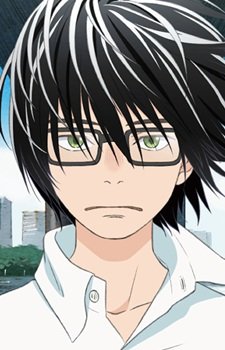Series & First Appearance
Rei Kiriyama is a central character in the manga and anime series March Comes in Like a Lion (3-gatsu no Lion), created by Chica Umino. He first appears in Chapter 1 of the manga, which debuted in July 2007, and later in Episode 1 of the anime adaptation, produced by SHAFT, which aired in October 2016.
Profile at a Glance
Rei Kiriyama is 17 years old and serves as the protagonist of the series. He is a five-dan shogi player who became a professional at a young age, navigating the complexities of life and shogi amidst personal tragedy. Rei initially lives under the care of his father’s friend, Kouda, before moving on to lead an independent life, which includes an eventual return to high school after a year of delay.
Personality & Motivations
Rei is characterized by his introspective nature, often feeling isolated due to his past traumas, including the loss of his parents and sister in a traffic accident. His personality is molded by a mix of social anxiety, introspection, and determination; he regularly grapples with feelings of loneliness and self-doubt. Rei desires connection and personal growth while simultaneously struggling with the pressures of professional shogi. His journey is not only about mastery in the game but also about finding his place in a world that often feels disconnected. Notably, he tends to speak in a somewhat formal and reserved manner, reflective of his serious demeanor.
Abilities / Powers
As a shogi prodigy, Rei possesses exceptional analytical skills and a keen understanding of strategy, which allows him to read opponents effectively. His signature ability is to remain focused and calm during high-pressure matches, although he often battles internal conflicts that can affect his game. Throughout the series, Rei’s skills evolve, showcasing improvements not just in shogi but also in his emotional maturity. One limitation he faces is his occasional overwhelming sense of fear and doubt, which can negatively impact his matches and mental state.
Major Story Arcs & Growth
Rei’s character development is deeply influenced by pivotal story arcs that explore themes of grief, belonging, and maturity. Key moments include his struggle to cope with the loss of his family, which triggers his feelings of isolation; his complex relationship with his mentor Kouda, who embodies both guidance and pressure; and the friendships he builds with the Kawamoto sisters, who provide him emotional support and a sense of family. A major turning point occurs when Rei acknowledges his need to reconnect with others and confronts his mental health challenges, culminating in his decision to attend high school and rediscover the joys of life beyond shogi.
Notable Relationships
Rei’s relationships shape his narrative and personal growth significantly. He shares a complicated bond with his mentor, Kouda, representing both support and pressure. The Kawamoto sisters—Hinata, Momo, and Akari—serve as essential figures in Rei’s journey toward emotional healing, providing warmth and familial support. His rivalry with fellow shogi players, particularly with Sōta, is also crucial, as it stirs both competitive spirit and personal reflection on his motivations.
Iconic Moments & Quotes
One memorable scene occurs in Episode 22 when Rei interacts with the Kawamoto sisters during their festive preparations, showcasing a turning point in his emotional openness and comfort in a friendly environment. In Chapter 107, Rei’s poignant realization, "It’s okay to be lost. Everyone is. I just have to keep moving forward," reflects his internal struggle and resonates deeply with viewers who relate to his journey.
Trivia & Behind-the-Scenes
Rei is voiced by the talented Kōki Uchiyama in the Japanese version and by Billy Kametz in the English dub, both of whom have received praise for capturing his complex emotional range. The series has gained a strong following, evidenced by Rei’s placement in popularity polls, where he consistently ranks among the top characters. His character design, featuring a somewhat disheveled appearance during moments of stress, symbolizes his internal conflict and growth. The series effectively highlights the intricate relationship between shogi and life, making Rei’s journey universally relatable.
In summary, Rei Kiriyama’s character encapsulates the struggles of youth, the weight of expectations, and the healing power of connection through his experiences in both shogi and life. His story unfolds as a powerful narrative about overcoming grief, building relationships, and striving for personal fulfillment amidst adversity.







